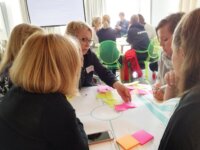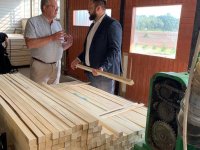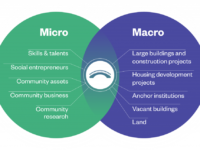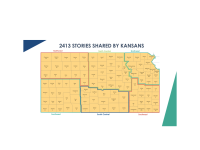Even though the Finnish education system still ranks highly among international comparisons, it is under pressure to reinvent itself. The Innovation Centre based at the Finnish National Agency for Education (EDUFI) has carried out a year-long, facilitated process, The Experimentation Lab to support teachers, school leaders and local education administrators to co-create local solutions to address complex challenges and simultaneously inspire transformation in education governance.
Innovation Tag: Systems Change
We often hear stories about the interpretations of laws and attitudes of public institutions. This year in Latvia for the first time the initiative “An Official Shadows an Entrepreneur” was launched, allowing for the public servant to broaden his view and “step into entrepreneur's shoes” to evaluate how the regulation is applied in practice and what requires further improvements. The initiative promotes a dialogue between the state and the business to reduce the administrative burden.
The Government Mentor Program (GMP) is an initiative started by the Government of Telangana, India, envisioned to build familiarity with the Government by bringing officials from relevant departments to mentor startups. The organisers believe that startups work on innovative solutions that have the potential to reform existing processes and services that bodies provide. The goal of GMP is to assist entrepreneurs eyeing the Government as a client to establish connections and seek mentorship…
USE-IT!, Unlocking Social & Economic Innovation Together!, is a whole neighbourhood approach to addressing urban poverty.
It innovates by building bridges between the places, the people, the public sector, the private sector and civic society partners in a community so they can co-produce solutions to poverty that unlock opportunities and that fits their needs.
By doing this, USE-IT! works by respecting what is already there in a community rather than by assuming what needs to change.
The Ministry of Possibilities is a virtual ministry created to incubate and solve the systemic impossibilities of government.
It works by creating time-bound departments experimenting together to ask impossible questions and disrupt the conventional systems with leapfrog solutions that are yet to be explored
Its focus areas & mandate are:
To IDENTIFY impossibilities
To INCUBATE virtual, timebound departments/teams to solve and explore the impossibilities
To EDUCATE and train on the mindset of…
The State of Kansas piloted ‘Our Tomorrows,’ a novel framework to capture family experiences about thriving and surviving, to ensure that policies and practices meet the needs of families. The approach makes a large amount of data (over 2,500 narratives) directly accessible to decision-makers and the individuals who provided it. Communities make sense of patterns that emerge from stories to create a portfolio of small actions that will make Kansas the best place to raise a child.
Case Study
Putting Users First: An Innovative Approach to the Modernization of the Heating Assistance Rebate…
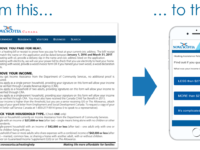
The Heating Assistance Rebate Program (HARP) helps over 42,000 low income Nova Scotians with the high cost of heating their homes in the winter. In 2016 Service Nova Scotia used an innovative approach to modernize HARP from a paper-based application to an online system to improve user experience and government processes. The modernization of this program was uniquely user-driven with significant user-testing leading the transition process and continuous user-testing for ongoing improvement.
Societal challenges such as demographic change affects rural areas in particular. The Social Foresight Lab is an innovative participatory approach towards rural development and technology transfer to address these challenges. It combines foresight, needs assessment and strategy development. Rural areas benefit, as it takes into account regional characteristics, initiates new cooperations among regional stakeholders, and integrates technological and social innovations into regional development.
In most countries residents are entitled to a number of social benefits, but few people ultimately claim these benefits as they may be unaware of them, of who is eligible, how to apply for them etc. Israel was no different, until recently when Kol Zchut developed www.kolzchut.org.il, which holds over 6,000 information pages, serving more than 6 million unique users annually (>50% of Israelis), dramatically increasing public accessibility to information, and boosting claims to benefits.
The Australian government is transforming employment services to improve how the system works for job seekers, employers and the community.
Transformational change requires genuine consultation to capture the diversity of views of stakeholders affected by changes, identifying pain points, testing ideas and laying the groundwork for sustainable policy reform.
A citizen centric approach helps to understand the real-world impact, leading to better outcomes and greater acceptance in the community.

